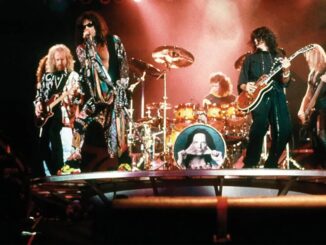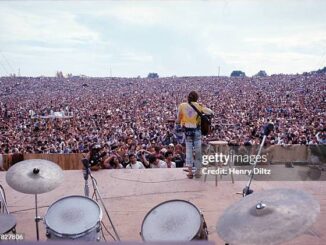The iconic Woodstock Music Festival, a beacon of peace, love, and musical expression since its inception in 1969, has announced its decision to cease future events. This heart-wrenching news comes as a shock to fans, artists, and music lovers worldwide who have cherished the festival’s spirit for decades. The decision was made after careful consideration of various unforeseen circumstances that have impacted the festival’s viability and mission.
### A Legacy of Music and Unity
Woodstock is synonymous with the counterculture movement of the late 1960s, embodying ideals of harmony, freedom, and artistic expression. The original festival brought together over 400,000 attendees, featuring legendary performances from artists like Jimi Hendrix, Janis Joplin, and The Who. Over the years, Woodstock has evolved, hosting several revivals and anniversary celebrations, each echoing the values of its predecessor.
However, the landscape of music festivals has changed dramatically in recent years. Factors such as rising production costs, logistical challenges, and shifts in audience preferences have created an increasingly difficult environment for large-scale events. Despite the festival’s historical significance, the organizers faced mounting pressures that ultimately led to this heartbreaking decision.
### Financial Struggles and Logistical Challenges
One of the primary reasons for Woodstock’s cancellation revolves around financial sustainability. The costs of staging a festival of such magnitude have skyrocketed, with expenses for security, infrastructure, and artist fees continuing to rise. Coupled with decreased ticket sales in recent years, the financial strain has become untenable. Organizers have cited that maintaining the festival’s quality while balancing a budget has become an insurmountable challenge.
In addition to financial pressures, logistical issues have also plagued the festival. The complexities involved in securing permits, coordinating with local authorities, and ensuring the safety of thousands of attendees have grown increasingly intricate. The pandemic, in particular, introduced new layers of regulation and uncertainty that made planning a festival of Woodstock’s scale increasingly risky.
### Changing Cultural Landscape
The cultural landscape surrounding music festivals has also evolved. While Woodstock was once a symbol of youth rebellion and artistic freedom, the modern music scene has diversified dramatically. New festivals with varying themes and formats have emerged, attracting audiences with niche interests. This shift has created fierce competition for the traditional festival model that Woodstock embodies.
Moreover, the audience’s expectations have shifted. Today’s festival-goers often seek immersive experiences that extend beyond music, including art installations, wellness activities, and gourmet food offerings. Adapting to these demands while preserving the essence of what made Woodstock special has proven challenging for organizers.
### A Heartfelt Farewell
The announcement of Woodstock’s cancellation has elicited an outpouring of emotions from fans and former attendees. Social media platforms are filled with memories of unforgettable performances and moments of connection. Many fans express their sorrow and nostalgia, reflecting on how the festival has shaped their lives and musical tastes.
Organizers have emphasized that the decision was not made lightly. They expressed deep gratitude for the community that has supported Woodstock through the years, acknowledging the festival’s role in promoting peace, love, and social change. While this chapter may be closing, they hope the spirit of Woodstock will live on through the countless artists and fans inspired by its legacy.
### Looking Ahead
As the music industry continues to adapt to new realities, the impact of Woodstock will not be forgotten. The festival has played a pivotal role in shaping the music scene and fostering a sense of community among diverse groups. Although the official Woodstock Music Festival may not sing again, the ideals it championed will resonate for generations to come.
In a world where music brings people together, the essence of Woodstock lives on in every note played, every lyric sung, and every moment shared. Fans around the globe will continue to celebrate its legacy, ensuring that while the festival may have come to an end, its spirit will forever echo in the hearts of those who believed in the power of music to change the world.



Be the first to comment